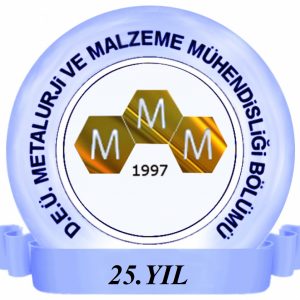Undergraduate
Programme Objectives
Programme Graduates;
- work as engineers and managers in private/public institutions and organizations on metal, ceramics, polymer and composite materials within the field of Metallurgical and Materials Engineering.
- engage in research and development (R&D) and product development (P&D) activities in national and international institutions and organizations.
- receive graduate education in national and international educational institutions and organizations and work as academics.
Key Learning Outcomes
- Ability to use the knowledge of mathematics, physics, chemistry and engineering principles in solving complex problems encountered in the field of Metallurgical and Materials Engineering.
- Ability to define, analyze, model and solve complex engineering problems related to Metallurgical and Materials Engineering, and select and apply appropriate methods for this purpose.
- Ability to design a complex system, process, device, or product in Metallurgical and Materials Engineering for a defined purpose under realistic constraints and conditions, define the processes required for production, and use modern design methods.
- Ability to devise, select, and use modern techniques and tools needed for the analysis and solution of complex problems encountered in the field of Metallurgical and Materials Engineering; have the ability to use information technologies effectively.
- Ability to design and conduct experiments, collect data, analyze and interpret results for investigating complex problems or research topics in Metallurgical and Materials Engineering.
- Ability to work individually and perform efficiently in intra-disciplinary and multi-disciplinary teams.
- Ability to communicate effectively in written and verbal communication in Turkish and at least one foreign language, writing reports and understanding written reports, preparing design and production reports, making presentations, giving and receiving clear and understandable instructions.
- Ability to access information and use it in accordance with its purpose, follow the developments in science and technology, learn lifelong, and continue to educate themselves, taking into account the needs of the age.
- Knowledge about universal, social, and professional ethical values; gain the awareness of taking responsibility and acting in accordance with ethical values.
- Knowledge of business practices such as project management, risk management and change management, and sustainable development; gain awareness about entrepreneurship and innovation.
- Knowledge about the effects of engineering and production activities on health, safety, environment, economy, and social life, and the issues of the modern age; gain awareness about the legal consequences of engineering practices.
- Knowledge and ability to apply processes and technologies related to the production, processing, protection, and recycling of materials.


